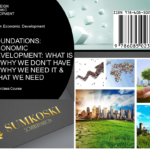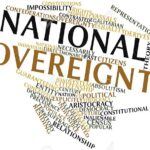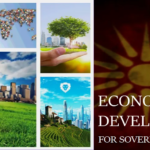

US President Joe Biden has yet to express his policy preferences regarding the Middle East, but considerable discussions already have arisen about his perceived effort to focus more intensively on the Pacific region and on China in particular.
There is no question that East Asia and China have become a priority for the Biden administration, as evidenced by the persistent citing of the challenges awaiting the US and by the formulation of new policies.
The Middle East, where the US has expended trillions of dollars over decades, however, is not about to go away. The Israel-Hamas conflict may have reminded all of the volatility of the region, but this is not all. There are important structural reasons – some old, many new – that will keep Washington fully engaged in this part of the world.
First, over the years of US engagement, numerous commitments were made to a variety of states. The US has always had a hard time distancing itself from its promises as long as the other party has not gravely breached its part of a bargain. Above all, of course, are the security commitments Washington has made.
The Cold War may be long over, but the hazards have not disappeared. There are a number of old and new revisionist powers prowling the region willing to challenge the US, which they perceive is tired and perhaps even weakened, and attempt to achieve their hegemonic ambitions. These notable powers are Russia, Iran, Turkey and, increasingly, China.
The Russians are not new to the region, of course. What is different about Russia is that while the Soviets always perceived – or at least rationalized – their behavior through an ideological prism, the new Russia is very much a Putin assembly and as such reflects its leader’s preferences and ambitions.
President Vladimir Putin fancies himself running a superpower – yes, Russia does have a huge military and nuclear weapons – and therefore should be taken seriously. The reality is very different: Putin runs an economy that relies on oil and gas production and arms exports. It has little to contribute to global welfare.
Russia’s 2020 gross domestic product was US$1.5 trillion – just over five times Apple’s 2020 sales of $275 billion (Apple’s market capitalization is about $2.1 trillion).
Putin’s Russia engages in two types of activity: defending its allies, such as Bashar al-Assad’s Syria, or expending efforts at undermining American influence – its way of saying, “I am important, pay attention to me.”
From cyberattacks to supporting regimes Washington has either targeted or deemed adversarial, to backing groups likely to undermine US interests, there does not seem to be a coherent Russian strategy other than maximizing its arms sales.
Moscow does claim to support the status quo against Washington’s machinations – it may have a point here in view of America’s recent militarization of its foreign policy, especially in the Middle East – but the order it supports almost always portends an alliance with odious entities.
Iran is the quintessential revisionist power; its regime is still the byproduct of the 1979 Revolution, and its goals have not changed much since. It seeks to impose its vision on the region writ large.
Iran’s actions are both defensive and offensive in nature. In Iraq, Lebanon, Gaza, Yemen and Syria, to name just a few, Tehran has founded, nurtured and funded violent militias. Not only are its actions unlikely to change, but they will force the US to remain continuously on its toes.
This is likely to be the case regardless of the outcome of the nuclear negotiations and the future of the Joint Comprehensive Plan of Action (JCPOA). Were Washington to abandon its Iraqi allies, for instance, the likelihood of regime change in Baghdad would become a real possibility.
Turkey is a brand-new revisionist power. Traditionally a US NATO ally, Ankara has historically, despite its occasional differences with Washington, supported the status quo in the region or at least refrained from actions deleterious to America’s interests. This has radically changed under President Recep Tayyip Erdogan, who views himself the leader of the region.
Erdogan, almost from the beginning of his rule 19 years ago, intends to make Turkey – and by default himself – a consequential global power.
Initially through diplomacy and the smart use of Turkey’s cultural advantages, he accomplished much. However, in part because of his impatience that resulted in increasingly aggressive measures ranging from the Eastern Mediterranean to Libya to Syria to supporting groups like the Muslim Brotherhood against established regimes, he has alienated many in the region. The turn to unabashed authoritarianism at home has not helped matters either.
Turkey’s alliance commitments notwithstanding, Erdogan now sees himself as a challenger to the US in the Middle East. Anti-Americanism in Turkey encouraged by him, his party and the mostly regime-dominated press, has reached deafening levels.
He has also shocked both the US and the North Atlantic Treaty Organization by purchasing Russian-made S-400 anti-aircraft missiles that threaten the alliance’s fifth-generation F-35 fighter jet. His foreign policy increasingly is militarized and he has not refrained from deploying Turkey’s prowess to gain support and a foothold not just in the Middle East, but also in Africa.
Apprehension about Erdogan’s intentions is one reason Arab Gulf countries and Israel have established relations with each other, and new political-economic organizations linking Greece, Cyprus, Israel and Egypt have come into existence. Regional states increasingly will be expecting that the US contains Turkey, its nominal ally – representing an unusual, if not an extraordinary, change of role for Washington.
All of these factors potentially point to a region that can quickly be destabilized.
The worries about climate change and efforts at intensified use of renewables have created the perception that the days of oil are over. Those predictions may be correct, but they will not be realized any time soon. For the foreseeable future, Middle East oil will continue its pivotal role in fueling global economic activity. Therefore, any threats aimed at the production and distribution of this commodity risk jeopardizing global economic well-being.
Hence, whether it likes it or not, the US will remain the pre-eminent power in the region. Some in Europe, such as France, have been willing to take on the region’s revisionist powers, but they lack America’s resources and relationships.
This article was provided by Syndication Bureau, which holds copyright.





























